46. PERSIMMON TREE
Diospyros virginiana
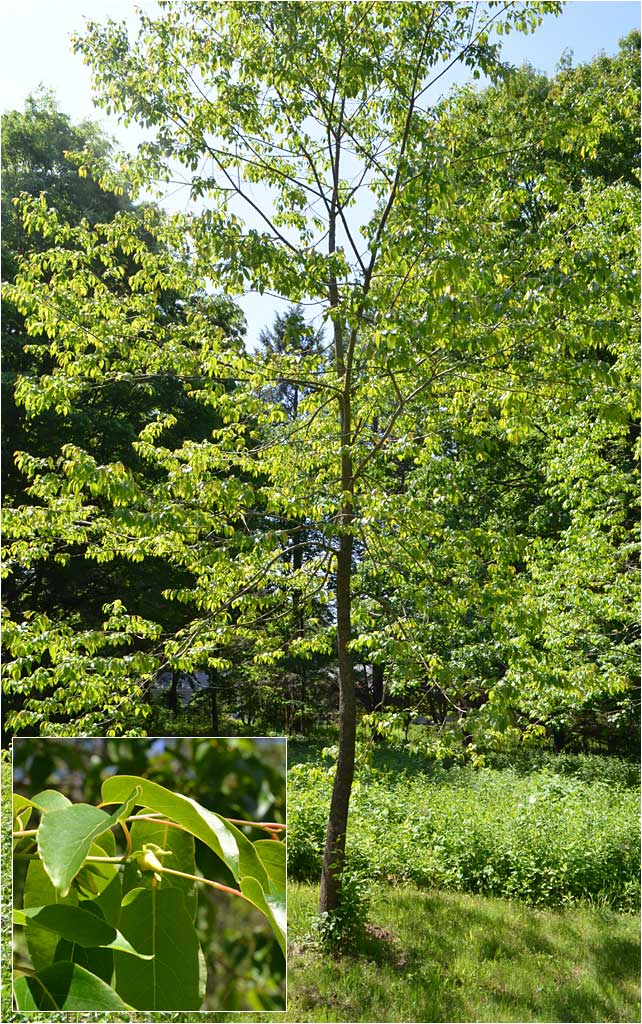
Close to the Burr Oak there's a path that is guarded by two Persimmon trees. These were planted in 2003 by Douglas Jackson of Westmoor Park. Three trees survive the original planting (bare root seedlings) and are now healthy young trees. In June, look for the tiny flowers of the Persimmon, but you will have to look closely.
SPRING, FLOWERS
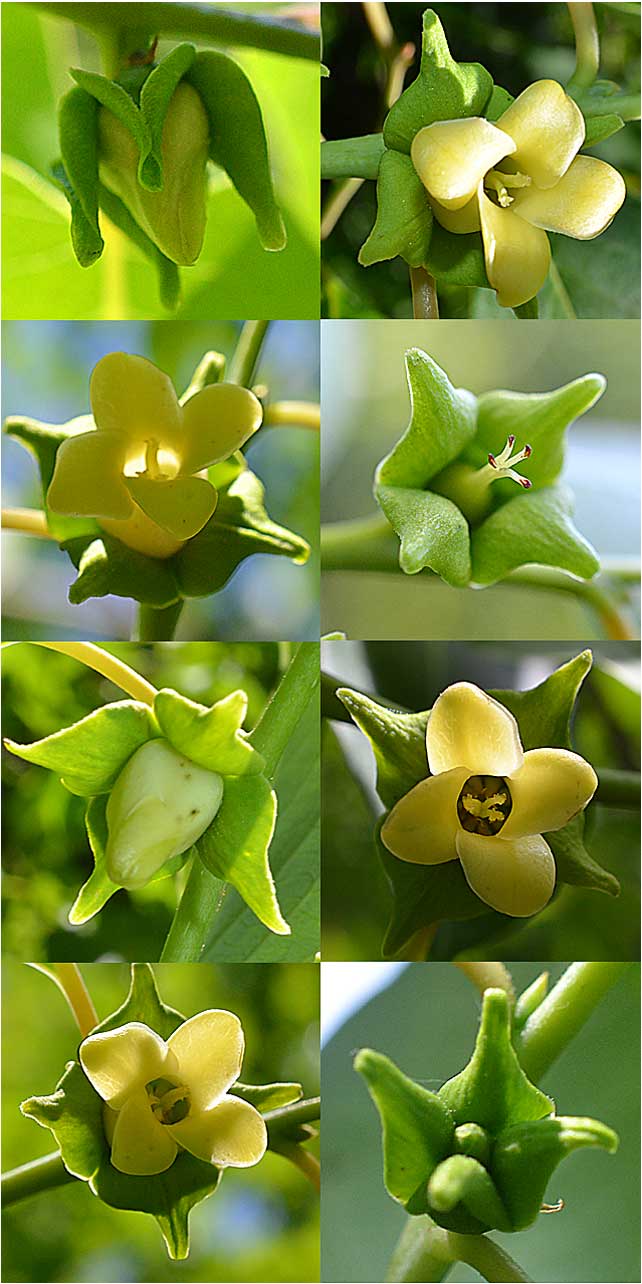
Your reward will be a display of stunning flowers in all stages of development. Persimmon trees are dioecious (M/F flowers on separate trees) and all of the Persimmon trees in the Arboretum are currently female. New plantings are trying to balance that equation, but those plantings are years away from maturity.
SUMMER

Summer foliage in full form, with leaves 3-4 inches long with smooth leaf edges (margins). Although we have yet to see large fruit on any of the Persimmon trees, they do produce a small fruit every year...
SUMMER FRUIT
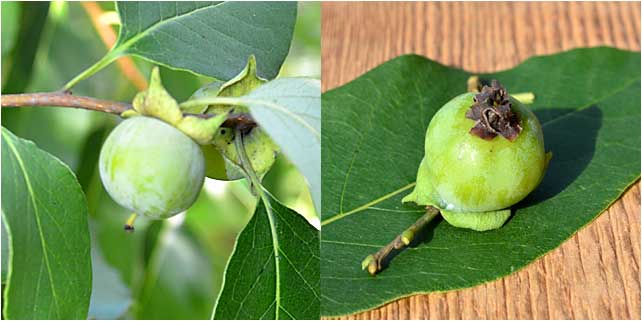
The unfertilized fruit is small (3/4 - 1 inch) and produced in fair amounts each year. Look carefully as they are usually hidden in (and often under) the leaves. You may find these all Summer long and into Fall.
4 SEASON LEAF & BARK

Leaves are alternately arranged, and the bark has deep furrows and reddish coloration on furrow valleys. Both are attractive.
FALL
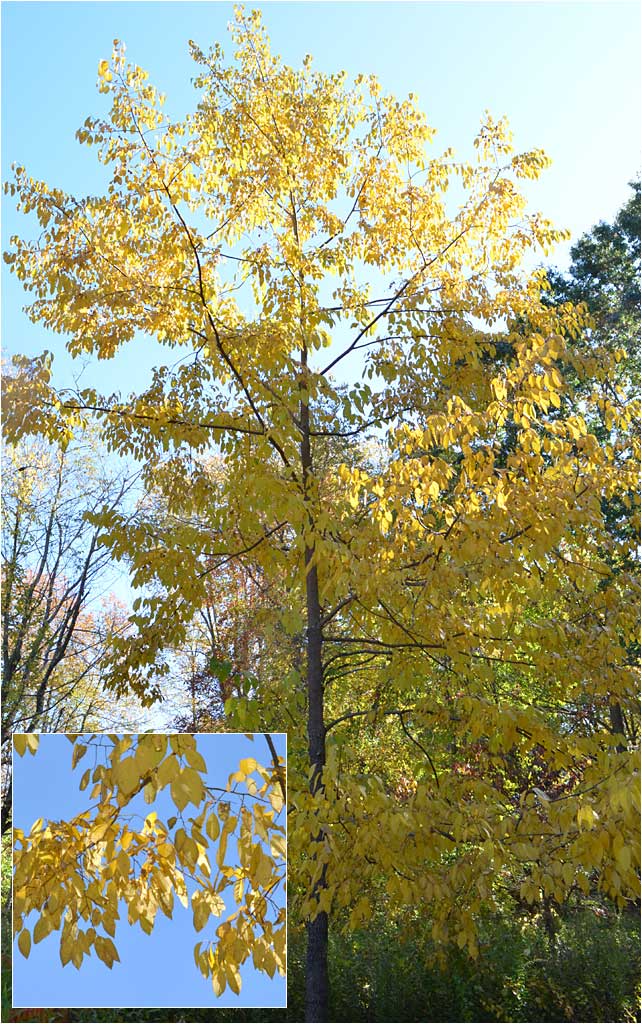
Fall brings a pleasant gift of yellow color toward the end of October, and a few other surprises as well.
FALL, FRUIT

Persimmon fruit (when pollinated) is typically the size of a medium tomato, app. 3 inches. These unfertilized fruit are still less than 1 inch, but still undergo ripening each fall. The seeds they contain, if any, will not produce another tree.
WINTER
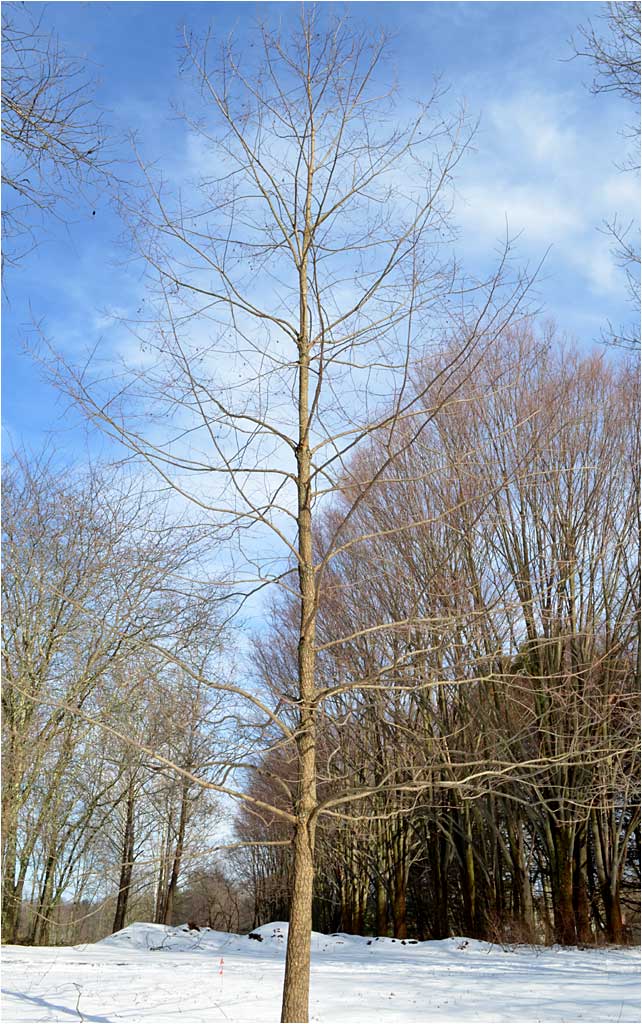
A straight, erect bole (trunk), single stem, sparse but efficient branching, and graceful symmetry are on display all winter long.